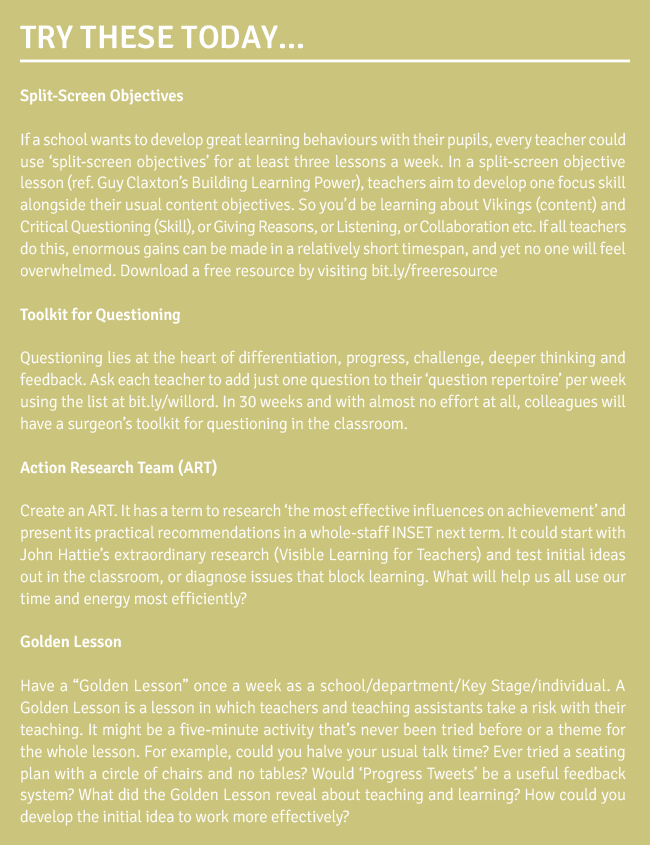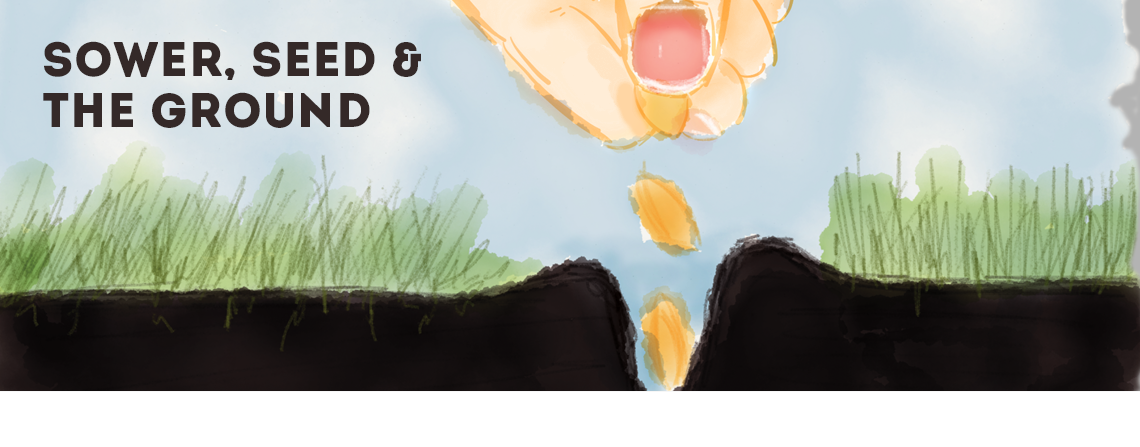Teacher favourite, Will Ord, talks to STAFFROOM about great INSET and how your school can get the most out of one.
Ever had a didactic 90 minutes on how concentration wanes after 45 minutes?
Or felt patronised by a trainer who needs to treat adults like children to prop up their own confidence?
Or been introduced to the blindingly obvious as if it’s a divine revelation?
Or been fluffed up to feel great about teaching, only to leave empty-handed when it comes to practical ideas?
Bad INSET. It’s very costly in terms of time, resources, funding and, worst of all, staff motivation.
So what are some of the keys to great INSET?
In the last 11 years, I’ve provided roughly a thousand INSET days to all types of schools in 20 countries, as well as running a few hundred courses as an Osiris trainer. Here are a few reflections on what makes a great INSET day.
In short, I find that teachers want an
INSET day to be:
- Practical (above all)
- Engaging
- Interactive
- Informative
- Inspiring
- Challenging
- Well timed and paced
They also want to be professionally treated; a nice lunch, a warm comfortable venue and good course resources are all important. Having a trainer whose experience, humour, humility and realism make them credible and approachable can also go a long way. Nothing surprising in this so far.
However, even if an INSET day includes all of these factors, there’s still no guarantee that any real or sustainable change will happen in the school as a result. Why not? Because you may have the sower and the seeds sorted, but the ground may not be prepared.
The Fizzle Factor
Quite rightly, teachers want lots of practical stuff to take away and apply in their classrooms, and these ‘seeds’ should form the core content of an INSET. However, if that’s all that the INSET involves – practical classroom techniques – then the most likely result is a wonderfully fizzy few weeks or a month following the session, and then the Fizzle Factor strikes. Things revert to old habits, and the INSET benefits sink quietly into the sand.
From my experience, any sustainable development in a school needs four ‘ground aspects’ to work: it needs to be collective, incremental, strategic and experimental. Moreover, these need to be addressed – at least to some degree – during the INSET.
A-Collective
Is everyone clear about what changes are wanted and why they’re wanted? Are the motivations extrinsic (Ofsted, grades, levels, league tables etc.) or intrinsic too (school vision, aspirations, professional fulfilment etc)?
Do we have a shared understanding of the terms we’re using (Ms Smith’s ‘independent learner’ may be very different to Mr Dodd’s)? What percentage of your colleagues is going to contribute to the changes?
B-Incremental
Huge and sudden changes rarely take root, so by increments conquer. Use small, quality, powerful steps to success that are collectively applied with a “terrier on the trouser leg†attitude. Any real change in the way we teach and learn is going to be a three-to-five-year project as a minimum.
Impressive changes can happen in shorter times, but a truly established change in the basic school ethos inevitably takes longer. Be fair and realistic with expectations.
C-Strategic
Is the INSET programme just reacting to events, or is it leading them too?
Are the INSET foci a knee-jerk to an Ofsted report, or do they also contribute to your school vision?
Lots of things make a positive difference to achievement, but some things work much more effectively than others. Have you consulted available evidence, test cases and research?
Have you got structures and systems in school that support or block change?
Do you abandon the less useful to make way for the more useful, or do you let it linger on?
D-Experimental
For sustained school development, habits need to change. Does the INSET inspire staff to experiment and learn – through trial and error – for themselves? Does it constrict and threaten, or invite and excite? If we want challenge, independence, resilience and creativity in the classroom, will the INSET help to generate those qualities in the staffroom as well?
There are, of course, many other factors to great INSET. How do you differentiate for staff, for example, or how do you engage the ‘Teflon Teachers’ who resist change? But the keys to great INSET rely as much on the trainer and the day itself as the context within which the INSET is happening. In essence, for great INSET you need a skilled sower, some decent seeds and fertile ground. It’s all three, or fizzle! SR



